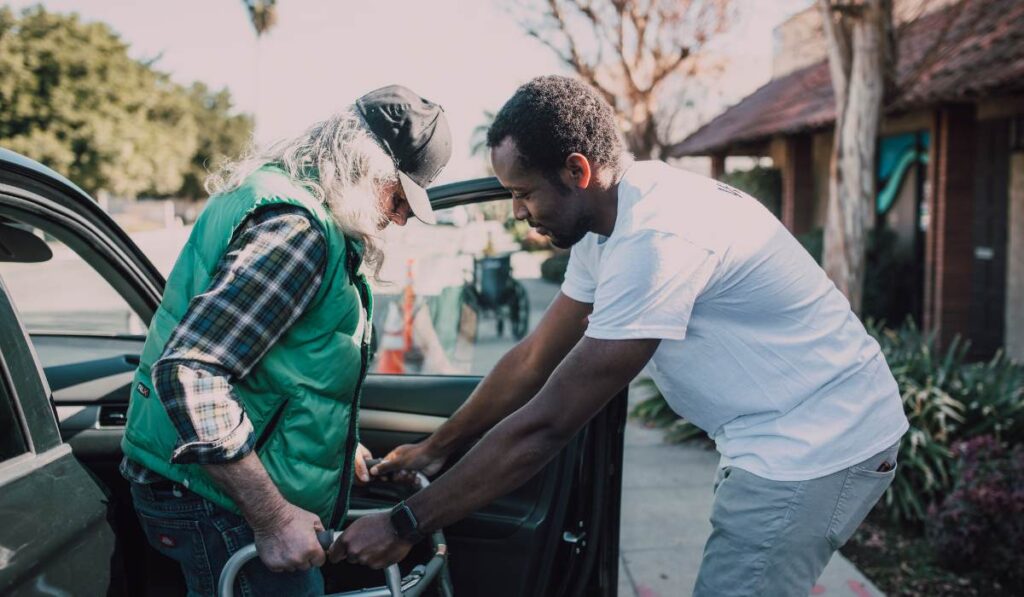
Describe an occasion when you helped a family member/relative with something
IELTS SPEAKING CUE CARDS:
Describe an occasion when you helped a family member/relative with something
You should say:
When it happened
Who you helped
How you helped
And explain how you felt about the experience
Sample Answer
One occasion when I helped a family member was about a year ago when my younger cousin, Neha, needed help with her school project. It was a challenging science project that required both creativity and technical skills, and since Neha was struggling with it, she turned to me for assistance.
It happened during the summer holidays, and I vividly remember how frustrated she was when she asked for help. She had to create a working model of a simple machine, and although she had plenty of ideas, she didn’t know how to turn them into reality. I’ve always been a bit of a hands-on person, so I offered to guide her through the process.
We sat together in the living room and discussed her ideas. After brainstorming for a while, we decided to build a model of a pulley system using materials like cardboard, string, and some small weights. I helped her with the technical aspects, explaining how pulleys work and showing her how to assemble the model step by step.
As we worked together, I encouraged her to stay patient and motivated, and slowly but surely, the project began to take shape. Neha did most of the work under my supervision, and by the end of the day, we had a functioning pulley model that she was proud to present at school.
What made the experience even more special was seeing her excitement and confidence grow. The next day, she presented the project at her school and received a lot of praise from her teacher and classmates. She was so happy and grateful, and that made me feel really proud as well. Helping her wasn’t just about the project—it strengthened our bond, and it made me realize how fulfilling it is to support family members when they need help.
Follow up
1. How do people know that their neighbours might need help?
Answer – People can usually tell when their neighbors need help by observing their behavior or changes in routine. For example, if someone seems unwell or is visibly struggling with something, it’s a sign that they might need assistance. Sometimes, neighbors might also directly ask for help if they feel comfortable enough.
2. Do neighbours often help each other?
Answer – In many communities, especially in more close-knit neighborhoods, neighbors do help each other frequently. Whether it’s borrowing items, sharing food, or lending a hand in emergencies, the sense of community often brings people together. However, in more urbanized or busy areas, people may not be as close to their neighbors.
3. Should parents reward their children when they help others?
Answer – While it’s important to acknowledge children’s efforts when they help others, the reward doesn’t always have to be material. Parents can praise and encourage their children, teaching them that helping others is valuable in itself. This way, children learn the importance of kindness without becoming overly reliant on rewards.
4. What can children learn by helping others?
Answer – Children can learn valuable life lessons, such as empathy, responsibility, and cooperation, by helping others. It teaches them to be mindful of the needs of others, builds their problem-solving skills, and fosters a sense of community and generosity.
5. Should parents always help their children with everything?
Answer – While it’s natural for parents to want to support their children, they shouldn’t always step in. Allowing children to solve problems on their own builds independence and confidence. It’s important for children to face challenges and learn from their mistakes.
6. How can children help their parents at home?
Answer – Children can help their parents in many ways, such as doing simple chores like cleaning their room, setting the table, or helping with grocery shopping. These small tasks teach children responsibility and contribute to maintaining the household.
Vocabulary, Idioms, and Phrases:
Vividly remember: to recall something clearly and in great detail.
Example: “I vividly remember the day we started working on the project.”
Hands-on person: someone who enjoys working with their hands or being directly involved in practical tasks.
Example: “I’ve always been a hands-on person, so I offered to help her.”
Step by step: slowly and with great attention to each stage of the process.
Example: “We worked on the project step by step.”
Take shape: when something starts to develop into a recognizable form.
Example: “The project began to take shape as we assembled it.”
Strengthened our bond: made our relationship stronger.
Example: “Helping her strengthened our bond as family members.”